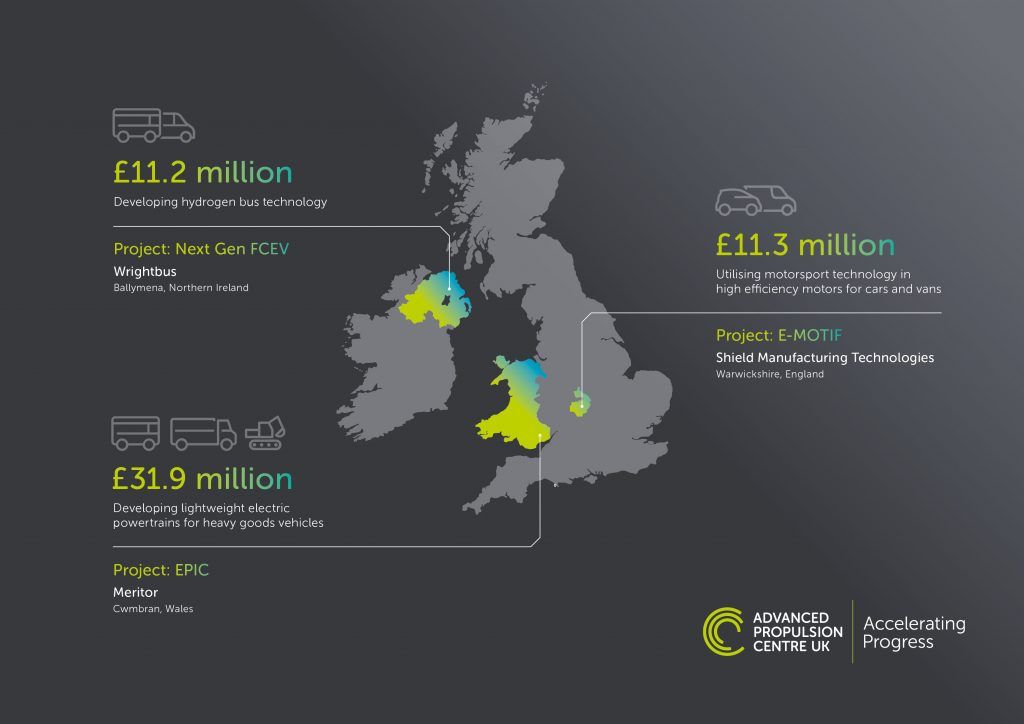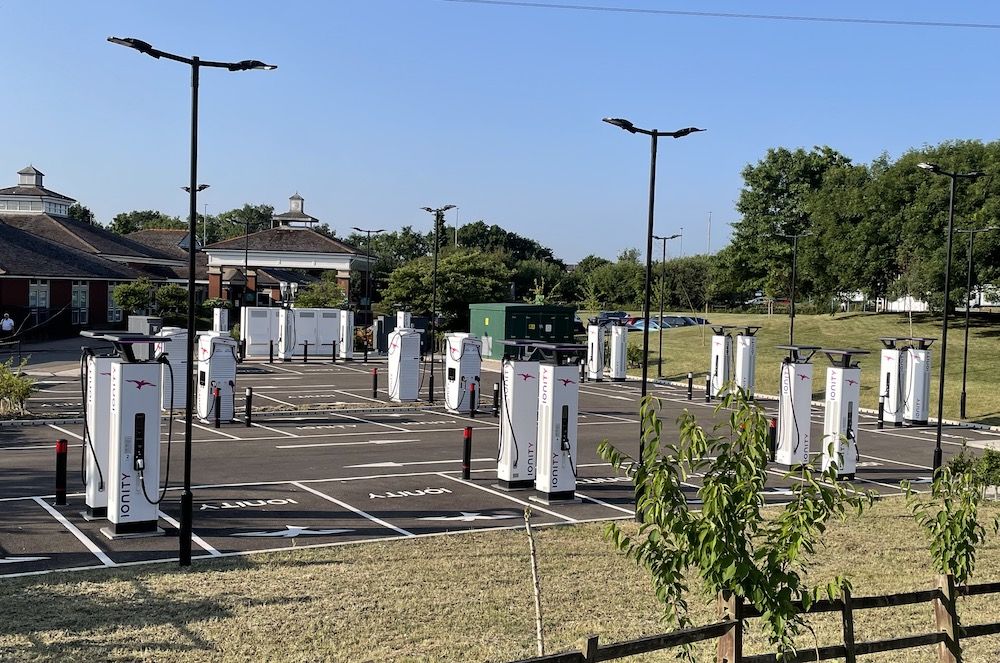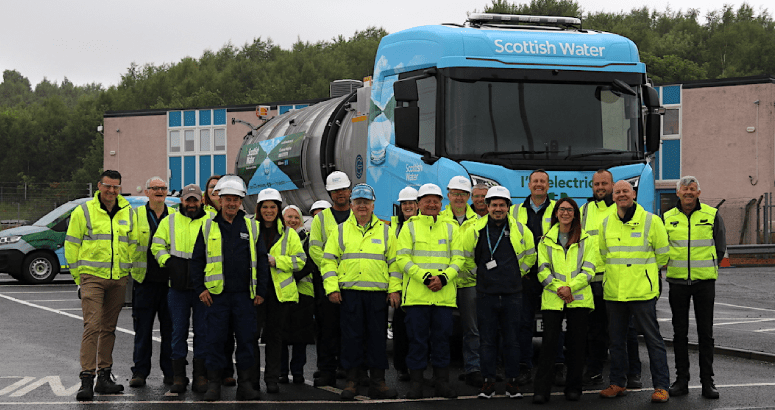Business Secretary Kwasi Kwarteng has announced £54 million funding for the next generation of electric trucks and hydrogen-powered buses.
The funding is set to secure almost 10,000 UK jobs and save millions of tonnes of carbon emissions.
Investment in new technologies, including hydrogen fuel cells, will help cement the UK’s position as a global leader in automotive technology and support the country to build back better and greener from the pandemic by helping to meet the UK’s climate goals.
The three projects being funded are:
- £31.9m to develop electric propulsion systems for heavy goods vehicles in Cwmbran, Wales. This technology could be applied in a range of ways, such as giving lorries greater travel range and better energy efficiency for coaches and construction vehicles
- £11.3m to develop and manufacture energy-saving technology from motorsport for use in cars and vans from a centre in Warwickshire
- £11.2m to develop and manufacture low-cost hydrogen fuel cell technology for buses and create a hydrogen centre of excellence with Wrightbus in Ballymena, Northern Ireland
Business Secretary Kwasi Kwarteng said: “The UK is leading the world by developing cutting edge technology that will help to tackle climate change and lead to a green, competitive future for our automotive supply chain.
“These projects will not only help accelerate the wider application of greener technology in lorries and buses, but will also help generate the high-skilled jobs to level up communities across the UK while ensuring we build back greener from the pandemic.”
This funding announcement builds on the recent launch of the government’s national Bus Back Better strategy and the Prime Minister’s 10 Point Plan for a Green Industrial Revolution, both of which aim to accelerate the shift to zero emission vehicles and decarbonise the UK’s transport networks.
Transport Minister Rachel Maclean said: “As we look to reduce our carbon emissions, strive towards our net-zero goals and level up right across the UK, the whole transport sector will need to embrace new innovative technology such as green hydrogen and these projects are a fantastic example of doing just that.
“I’m proud to see the UK leading the way in the global transition to zero-emission vehicles. In the next decade, we’ll continue to be at the forefront of their design, manufacture and use as we build back greener.”
Secretary of State for Northern Ireland, Brandon Lewis said: “Northern Ireland and the local economy thrives on innovation, manufacturing and technological advancements, leading the charge in allowing us to reach our ambitious goal of a net zero future by 2050.
“With a landmark investment of £11.2 million this will enable Wrightbus to become a centre of excellence for zero-emission technology in the heart of Ballymena.
“This is outstanding news for the people of Northern Ireland, protecting more than 1,000 skilled jobs and creating more than 3,000 additional jobs over the next 10 years. This will continue to level up our local economy, allowing Wrightbus to continue producing the next generation of world-leading hydrogen buses.”
Secretary of State for Wales, Simon Hart said: “As we work towards net zero by 2050, South Wales will be a hub of innovation and green technology as we transform the UK economy over the coming years.
“The investment in electric propulsion systems in Cwmbran will create more than 1,000 skilled jobs. It follows recent UK government backing for the Global Centre of Rail Excellence and to develop a net zero industrial zone across South Wales as we ensure that the region’s proud heritage is continued with the industries of the future.”
CEO at the Advanced Propulsion Centre Ian Constance added: “We are delighted to have guided the latest investment of more than £54 million in the development and production of innovative powertrains to further accelerate the transition of the automotive sector to a net-zero future. The funding will enable the UK to apply its world-class innovation and experience in electrification of vehicles across the supply chain in Great Britain and Northern Ireland.
“From fuel cell technology for buses, designed and built in Ballymena, a lightweight electric powertrain for commercial vehicles developed and manufactured in Wales and an integrated motor and energy recovery systems system for cars and vans based on motorsport technology in Warwickshire, today’s announcement secures and creates nearly 10,000 jobs and will cut CO2 emissions equivalent to removing the lifetime emissions of nearly 1.8 million cars.”
The Advanced Propulsion Centre (APC) collaborates with UK government, the automotive industry and academia to accelerate the industrialisation of technologies, supporting the transition to deliver net-zero emission vehicles.
Image courtesy of Advanced Propulsion Centre.














